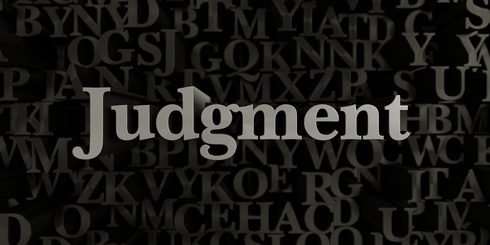The District Court of Appeal of the State of Florida, First District, recently affirmed the trial court’s entry of a final judgment of foreclosure, holding that because the complaint included at least some installment payments within five years of the filing of the complaint, the action was not barred by res judicata or the statute of limitations. A copy of the opinion in Forero v. Green Tree Servicing, LLC is available at: Link to Opinion. Husband and wife borrowers defaulted on their mortgage loan in December 2008. The mortgagee filed a foreclosure action in February 2010, but voluntarily dismissed the case in…
Posts published by “Hector E. Lora”
Hector E. Lora manages the firm’s Florida office and has substantial experience in all phases of complex commercial litigation, including bench and jury trials as well as appellate practice. Hector represents lenders, servicers, debt collectors and debt buyers in complex mortgage foreclosure actions, quiet title actions, federal TILA, RESPA, TCPA, and FDCPA actions and Florida FCCPA actions brought by borrowers or debtors. He also represents creditors in bankruptcy litigation, purchasers of accounts receivable or factoring companies that provide revenue-based financing to small and mid-sized businesses in collection actions, and landlords in commercial and residential evictions. Hector’s broad litigation experience includes over a decade of defending civil enforcement actions filed by the Federal Trade Commission as well as real estate contract disputes and partition actions, contested mortgage foreclosure and condominium lien foreclosure actions and the foreclosure of UCC Article 9 security interests. Hector also has advised a variety of types of businesses regarding their compliance with applicable federal and state consumer protection laws, including the Federal Trade Commission Act, the Telephone Consumer Protection Act (TCPA), the Telemarketing and Consumer Fraud and Abuse Prevention Act, the Telemarketing Sales Rule, the Controlling the Assault of Nonsolicited Pornography and Marketing Act of 2003, and Florida laws governing telephone solicitation and communication. Hector received his Juris Doctor from the Georgetown University Law Center, and his undergraduate degree with honors from the University of Florida. For more information, see https://mauricewutscher.com/attorneys/hector-e-lora/
The District Court of Appeal of the State of Florida, Second District, recently held that where loan documents provided that Florida law applied to foreclosure claims, the trial court erred in applying Texas law because the deficiency claim in the case was part of the Florida foreclosure process. A copy of the opinion in Bonita Real Estate Partners, LLC v. SLF IV Lending, L.P. is available at: Link to Opinion. Two limited liability companies and their principals borrowed $6.1 million to develop real estate, signing a promissory note, mortgage and personal guarantees. The loan documents provided that they would be…
The District Court of Appeal of the State of Florida, Fourth District, recently affirmed a final judgment in favor of a borrower because the foreclosing mortgagee failed to file the original allonge to the note, holding that as a result the mortgagee lacked standing to foreclose. A copy of the opinion in U.S. Bank National Assoc., etc. v. Jean Kachik is available at: Link to Opinion. A mortgagee sued to foreclose the mortgage, attaching copies of the promissory note and an “Endorsement and Assignment of Note” to the complaint. The endorsement was “blank.” At trial, the mortgagee offered the original note…
The U.S. District Court for the Southern District of Florida recently held, after a non-jury trial, that a regional supermarket chain violated the federal Americans with Disabilities Act (ADA) because its website was inaccessible to the visually impaired. A copy of the Verdict and Order in Gil v. Winn-Dixie Stores, Inc. is available at: Link to Opinion. The plaintiff, a legally-blind customer of the supermarket who also suffers from cerebral palsy, sued under the ADA, 42 U.S.C. §§ 12181-12189, alleging that its website was not accessible, seeking declaratory and injunctive relief and attorney’s fees and costs. The parties did not dispute…
The U.S. Court of Appeals for the Eleventh Circuit recently held that section 707(b) of the Bankruptcy Code, which allows a bankruptcy court to dismiss a chapter 7 petition if it finds that relief would be an “abuse” as defined in that section, applies to a petition initially filed under chapter 13 and converted to chapter 7. A copy of the opinion in Pollitzer v. Gebhardt is available at: Link to Opinion. A debtor filed bankruptcy under chapter 13 of the Bankruptcy Code, which allows a debtor to restructure his debts and keep his assets by submitting a plan that provides…
The U.S. Court of Appeals for the Eighth Circuit recently affirmed summary judgment against a former husband borrower and his ex-wife on their claims under the Missouri Merchandising Practices Act (MMPA) and for tortious interference with contract. In so ruling, the Court held that the foreclosure of the plaintiffs’ home loan was justified due to the husband’s misrepresentation on the modification application that he, not his ex-wife who was responsible for making the payments, was experiencing financial hardship and could not afford the loan payments. A copy of the opinion in Dale Wheatley v. JP Morgan Chase Bank is available…
The Bankruptcy Appellate Panel of the U.S. Court of Appeals for the Sixth Circuit recently held that a mortgage foreclosure deficiency judgment lien may be avoided under 11 U.S.C. § 522(f)(2), reversing the bankruptcy court’s ruling to the contrary. A copy of the opinion in In re Antoinette Pace is available at: Link to Opinion. The debtor filed a chapter 13 bankruptcy, listing her residence in Ohio on her schedules with a value of $147,630. She also claimed the residence as exempt homestead in the amount of $132,900, the maximum allowed pursuant to Ohio law. On her Schedule D, the debtor…
The U.S. Court of Appeals for the Eighth Circuit recently reversed the dismissal of a borrower’s lawsuit against his mortgagee for failing to restore his title after a non-judicial foreclosure and subsequent execution of a loan modification agreement, holding that the borrower’s claims were not time-barred and accrued only when he tried to sell the home more than five years after the modification agreement. A copy of the opinion in White v. CitiMortgage, Inc. is available at: Link to Opinion. A borrower refinanced his home mortgage loan in 2003, and defaulted in 2008. The loan servicer gave the borrower notice and…
The Bankruptcy Appellate Panel of the U.S. Court of Appeals for the Ninth Circuit recently affirmed the dismissal of an adversary proceeding without leave to amend, holding that: (a) the debtors failed to state a claim for wrongful foreclosure under California law; (b) the debtors failed to state a claim for breach of contract or breach of the implied covenant of good faith and fair dealing because they were not third-party beneficiaries of the pooling and servicing agreement; (c) the debtors failed to state a claim for breach of the deed of trust or breach of the implied covenant of…
The Supreme Court of the United States recently held that class action plaintiffs cannot stipulate to a voluntary dismissal with prejudice, then appeal the trial court’s prior interlocutory order striking their class allegations because a voluntary dismissal does not qualify as a “final decision” under 28 U.S.C. §1291 and improperly circumvents Federal Rule of Civil Procedure 23(f). A copy of the opinion in Microsoft Corp. v. Baker et al. is available at: Link to Opinion. A group of purchasers of Microsoft’s Xbox 360 gaming console filed a putative class action alleging that the Xbox was designed defectively because it scratched…
The U.S. Court of Appeals for the Second Circuit recently affirmed the dismissal of LIBOR-manipulation fraud claims brought by a group of hotel-related entities and their investor against a bank and two of its subsidiaries. In so ruling, the Second Circuit held that: (a) the borrower and related entities lacked standing to sue because they failed to list their potential claims in their bankruptcy case and the claims were barred by the doctrine of judicial estoppel; and (b) the claims of the investor and guarantors were untimely and barred by the law of the case. A copy of the opinion…
The U.S. Court of Appeals for the Eighth Circuit recently affirmed the dismissal of a putative class action brought under the federal Telephone Consumer Protection Act (TCPA) for making unsolicited telemarketing calls. The Eighth Circuit held that the plaintiff had given prior express written consent to receive the calls, and the trial court properly considered redacted business records that showed the consumer had given his prior express written consent to be called. A copy of the opinion in Zean v. Fairview Health Services is available at: Link to Opinion. A consumer who purchased a medical device filed a putative class…












